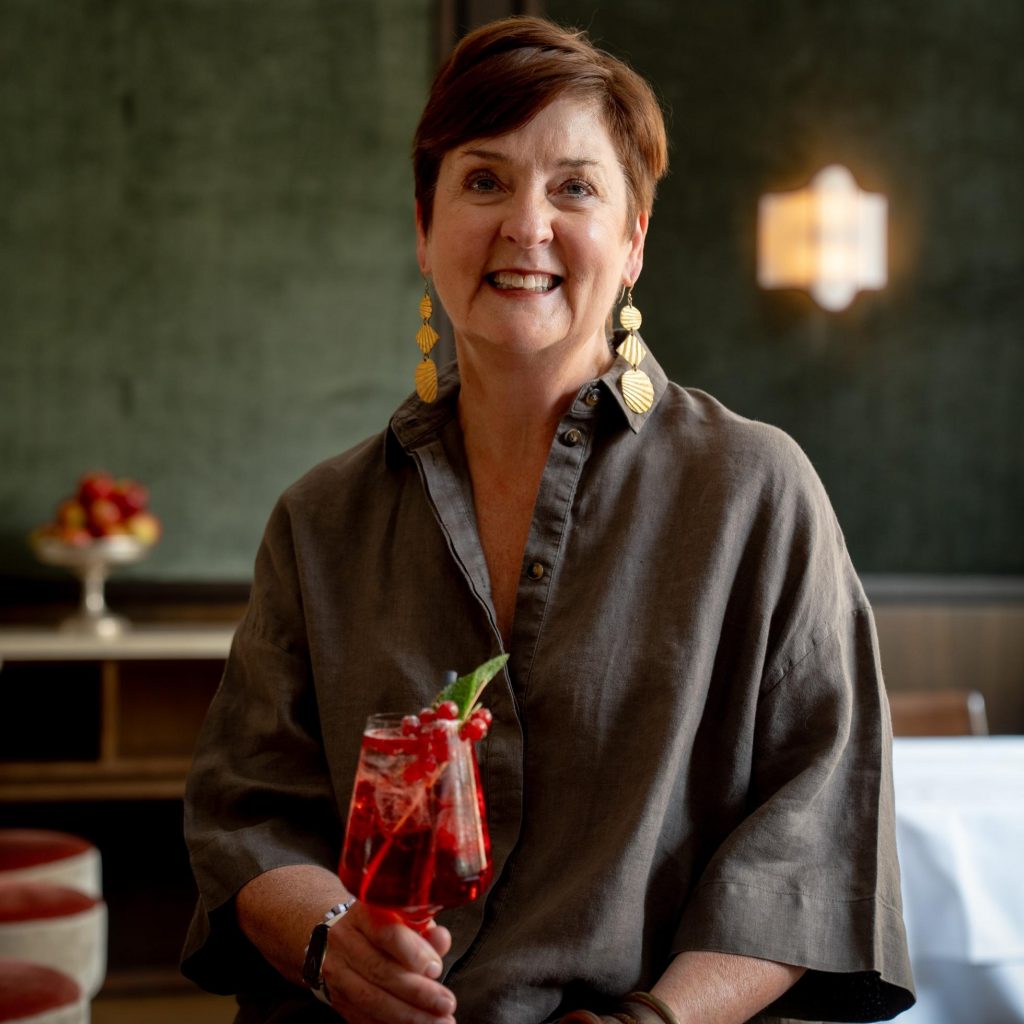In 1999, Andrea Grisdale founded Italian Connection Bellagio (IC Bellagio), using her experience in the travel industry to create tailor-made Italian experiences for discerning clients. After more than 25 years in the travel industry and numerous awards, IC Bellagio continues its mission of offering community conscious travel throughout Italy.
Andrea Grisdale’s Italian Routes, a new docuseries, explores the heart of Italy through the voices of those who experience it every day.
She recently spoke about being a woman in what was once an industry dominated by males.
Have you ever felt that working or competing in an industry dominated by male leadership has held you back?
When I first began my career in travel, I was ‘discreetly’ aware of how male-dominated the industry could feel, particularly in leadership and ownership roles. Sitting at tables where I was the only woman — and often the only foreigner in Italy — was intimidating at times. There were moments when my ideas were questioned more sharply than those of male colleagues and when I sensed I had to prove myself twice over to be taken seriously.
But instead of holding me back, these experiences pushed me forward. They fueled my determination to build IC Bellagio into a company where talent and ideas matter more than gender. Over the years, I’ve learned that the very qualities sometimes undervalued in women leaders — empathy, collaboration and a people-first mindset — are in fact powerful drivers of innovation and success in the travel industry.
I’ve also had the privilege of finding strong allies and mentors, both male and female, who recognized what I brought to the table. Their support, along with the resilience that comes from overcoming obstacles, has shaped me into the leader I am today.
This journey has also given me the opportunity to contribute on a larger stage, including my role as Vice Industry Chair for SMEs at the World Travel & Tourism Council. There, I’ve seen firsthand how critical it is to ensure that diverse voices are represented in shaping the future of our industry.
So, while gender dynamics have certainly presented challenges, I have never considered them as having held me back. If anything, they sharpened my resolve to create space not just for myself, but for other women to rise in this industry and to ensure that leadership reflects the diversity of those we serve.
How are women gaining ground in hospitality leadership roles?
Over the past two decades, I’ve seen a real shift in how women are represented in hospitality leadership. When I first started, women were often present in guest-facing roles but less visible in ownership or executive positions. Today, more women are moving into boardrooms, leading companies and shaping the direction of our industry — though we still have progress to make.
Part of this change comes from the increasing recognition that leadership is strengthened by diversity. Women bring perspectives rooted in empathy, adaptability and collaboration — qualities that resonate deeply in hospitality, where people and relationships are at the center of everything we do. These strengths are no longer viewed as “soft skills,” but as essential tools for innovation and resilience in a constantly evolving global market.
Networks and mentorship programs have also made a difference. I’ve seen how organizations and associations, including the World Travel & Tourism Council where I serve as Vice Industry Chair for SMEs, are actively creating space for women’s voices to be heard. Mentorship and peer support give women the confidence and visibility needed to step into leadership roles, and the younger generation now has more role models to look up to than ever before.
We’re also witnessing women making significant strides in areas once considered “closed doors” — from technology to sustainability and impact-focused tourism. This broadening of the leadership landscape allows women to not just participate but to lead with vision and authenticity.
While there’s still a gap to close, I believe the momentum is firmly on our side. Women are gaining ground not by conforming to traditional leadership norms but by reshaping them. Proving every day that hospitality leadership is richer, stronger, and more successful when women are at the table.
How can women best prepare for a career in the hospitality industry?
Hospitality is an incredibly rewarding career, but it demands passion, resilience and curiosity. For women preparing to enter the industry, the best foundation is to combine formal learning with practical experience. Education provides the theory, but it’s the hands-on roles — from guest services to operations — that teach adaptability, problem-solving and the value of truly listening to people.
I encourage young women to seek out diverse experiences early on: work in different departments, spend time abroad and learn languages. The ability to understand and connect across cultures is one of the greatest assets in hospitality. Equally important is building your own self confidence. Early in my career, I sometimes hesitated to speak up in male-dominated settings, however, I learned that authenticity and perspective are what set you apart.
Mentorship also makes a tremendous difference. Finding both female and male mentors who can share advice, open doors and challenge you to grow is invaluable. I’ve benefited from those relationships and I now see it as part of my responsibility to mentor the next generation of women in travel.
Another crucial element is cultivating resilience. Hospitality can be demanding — long hours, unexpected challenges and constant change. Developing the ability to stay calm under pressure while still leading with empathy will carry you far.
Finally, I believe women should embrace their natural strengths. Empathy, attention to detail, creativity and a people first mindset. These qualities aren’t optional — they are the future of leadership in hospitality.
In concluding I would say be curious, be bold and be yourself. Equip yourself with skills, surround yourself with mentors and never underestimate the power of your intuition. Our industry needs more women leaders and that path is more open today than ever before.

